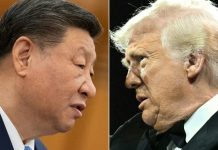Chabahar Port project will be a key agenda when India, Afghanistan and Iran will hold a trilateral meet in Kabul from September 9 to September 12. The secretary-level talks will be centred around the rebuilding of a war-torn Afghanistan and connecting India to Afghanistan via Chabahar Port and Iran.
- How Iran-Afghanistan Trade Corridor Benefits Both India and China?
- Why is India Nervous with Chinese Investments in Iran’s Chabahar Port?
Apart from investing heavily in the construction of Selma Dam, road networks and the Afghanistan Parliament, India has invested heavily in the rebuilding of Afghanistan. India has shown a keen interest in establishing alternative routes to the landlocked country and has emerged as a key ally of Afghanistan. India has also invested in the construction of Chabahar Port as the land routes to Afghanistan run through Pakistan.
Chabahar Port: Vital for India, Iran and Afghanistan
The construction of phase-1 of the Chabahar Port will be completed soon and an Indian company will take over the operations. Consignments of wheat and supplies have already reached Afghanistan from India through the Chabahar Port. But unless an extensive network of roads and railways is constructed to run deep into Afghanistan the potentials of the Chabahar Port will remain under-utilised.
The Chabahar Port holds the key to Afghanistan’s Development as well as India’s trade expanse to Iran and Afghanistan. The US has waged an economic war on Iran and the second round of sanctions will sink in soon. Despite this, the trilateral meet will endorse India’s and Afghanistan’s relations with Iran. The trilateral meet will be very significant for the future course of India-Iran relations given Tehran is the second largest exporter of oil to India.
As for the Chabahar Port, India has already invested USD 150 million in the construction of Phase-1 of the project. Now Tehran is hopeful that India will invest in the construction of phase 2 as well. But India will have to play a balancing act between Iran and the US given the economic war Iran and the US have landed in.
More News at EurAsian Times
- Can China’s J-20 or Russian SU-57 Really Match the US F-22 Raptor?
- Indian Military Base in Sabang can Strangle China at the Strait of Malacca
- Saudi Money, US Weapons, Israeli Intelligence Fuelling Arab NATO – Iran
- Here is what China needs to learn from India on Tax Reforms




